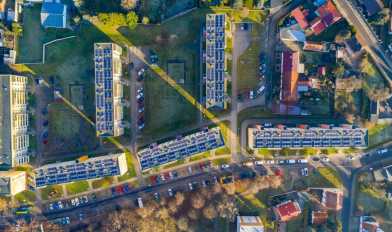ESC News
All stories that have been tagged with Energy sciences
100 Posts Later: The Energy Blog’s Founders on Its Origins and Growing Relevance
- Energy sciences
- News
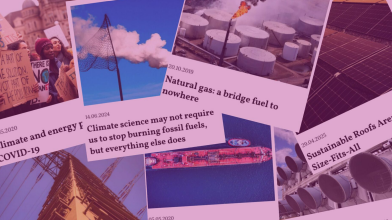
As the Energy Blog celebrates its 100th post, we spoke with two of its founders, Yael Borofsky and Florian Egli, to look back on its origins, impact, and the evolving world of energy research. What started as a casual idea among friends during a winter course at ETH Zurich has grown into a respected platform bridging academia, policy, and public conversation.
Mapping the Future Recovery of Ukraine: Regions Prioritization and Renewable Energy Potential
- Energy sciences
- News
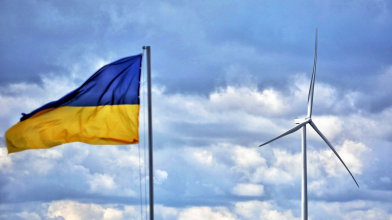
For the first time, ETH Researcher mapped all energy infrastructure in Ukraine (more than 1700 units), identified energy sector damages and calculated detailed renewable energy potential by region, using a comprehensive spatial analysis that integrates environmental, social, and technical factors. Research identifies priority regions for solar and wind energy development, offering a strategic blueprint for the country’s post-war energy recovery.
Thai Green Parliament Delegation Visits ETH Zurich for Energy Policy Exchange
- Energy sciences
- News
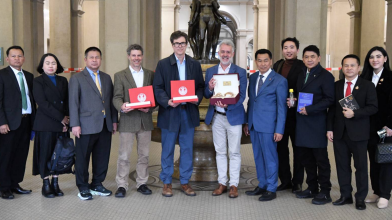
A high-level delegation from Thailand’s Standing Steering Committee on the Green Parliament visited ETH Zurich on May 5 to explore Switzerland’s climate policy and energy systems.
ESC welcomes three new members
- Energy sciences
- News
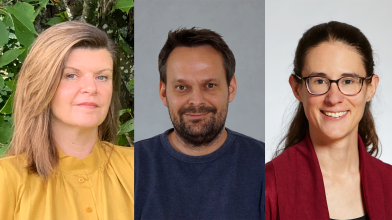
The Energy Science Center (ESC) is growing and welcomes three new members: Milica Topalović, Manuela Brunner and Felix Donat become part of the competence center.
ESC welcomes Blazhe Gjorgiev as new member
- Energy sciences
- News

The Energy Science Center (ESC) welcomes Dr. Blazhe Gjorgiev as a new member of the competence center.
MAN Energy Solutions Schweiz promotes energy research
- Energy sciences
- News
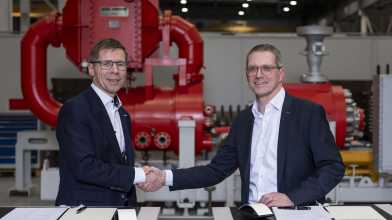
MAN Energy Solutions Schweiz AG and ETH Zurich are forming a strategic partnership to support postdoctoral researchers in the field of sector coupling and energy models.
Highly Cited ESC Members
- News
- Energy sciences

Five ESC members have been recognized as Highly Cited Researchers by Clarivate – one for the first time, one for the eleventh time in a row.
Elcom sieht Anreizprobleme im Schweizer Strommarkt
- News
- Energy sciences
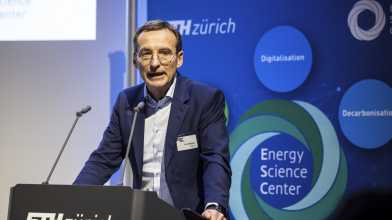
Auch an der diesjährigen ETH Energy Week gaben Experten aus der Wissenschaft, der Branche und der Politik spannende Einblicke in die Welt der Energie. Elcom-Geschäftsführer Urs Meister machte beispielsweise darauf aufmerksam, dass es in der Schweiz beinahe so viele Stunden mit stark negativen Strompreisen gibt, wie in Deutschland. Grund dafür seien vor allem Anreizprobleme.
Irina Simmen and Corina Oertli join the ESC as Communications and Events Managers
- News
- Energy sciences

The Energy Science Center (ESC) is very pleased to welcome Irina Simmen and Corina Oertli to the executive team. Irina joined the ESC in August 2024, Corina in September 2024. Both, Irina and Corina, support the Outreach Team with communication activities and event organisation at the ESC.
Christian Schaffner discusses Swiss Power Grid
- News
- Energy sciences
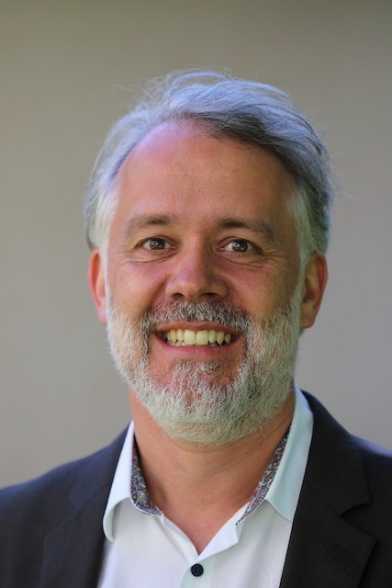
In the latest episode of the podcast "Die Energie-Enthusiasten", hostet by Lang Energie AG und Osterwalder Zürich AG, Christian Schaffner from the Energy Science Center and Karl-Paul Zwick discuss the Swiss power grid. They dive deep into key metrics, discuss the impact of power outages, and explore how renewable energy is being integrated.
Der Verein Reallabor Sisslerfeld ist gegründet
- News
- Energy sciences

Eine klimafreundliche Zukunft in den Themengebieten Energie und Mobilität gemeinsam angehen, sich zu bestehende Entwicklungen, Herausforderungen und Erkenntnissen mit Akteuren aus Wissenschaft, Wirtschaft und Gesellschaft kurzschliessen sowie praxisnahe Lösungsansätze erarbeiten: Diese zahlreichen Aktivitäten werden nun in dem neu gegründete Reallabor Sisslerfeld gebündelt.
Successful Conclusion of the 2023 Summer School on Energy Technology, Policy, and Politics: A Step Towards a Net-Zero Emissions Energy System
- News
- Energy sciences
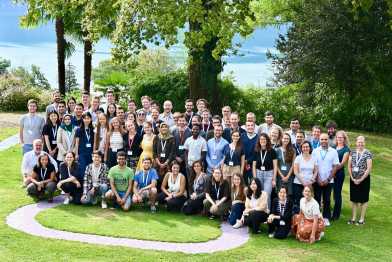
After a week of interactive keynotes, torrential rain, case study analysis, thunderstorms, and captivating poster presentations, the 2023 Summer School on Energy Technology, Policy, and Politics has officially come to a close.
Jonas Savelsberg joins Nexus-e as the new project manager
- News
- Energy sciences

Jonas Savelsberg joined the Energy Science Center as a senior project manager for Nexus-e in August 2023.
Nexus-e is growing: Matthieu Boubat joins as new scientific assistant
- News
- Energy sciences

Matthieu Boubat joined the Energy Science Center (ESC) in July 2023 as a scientific assistant. He is working on scenario developments for various projects at ESC and collaborating toward making the Nexus-e platform open source.
The search for clean flexible power: what can low-carbon multi-energy systems offer?
- Blog
- News
- Energy sciences
Congratulations to ESC members Zeilinger, Farinotti and Habert on their promotions at ETH Zurich
- News
- Energy sciences

Upon application of ETH President Joël Mesot, the ETH Board promoted three ETH professors who are also members of the Energy Science Center.
Understanding the carbon footprint of your daily commute: a guide to climate-friendly urban transport
- Blog
- News
- Energy sciences
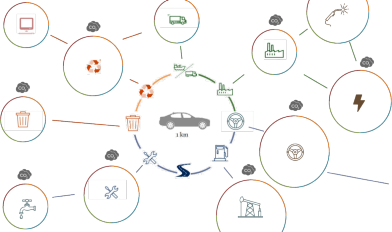
You are probably aware that your daily commute contributes to climate change. But just how much? In the latest post on the Energy Blog @ ETH Zurich, the authors offer a detailed look at the carbon footprint of various transport modes, from bicycles and scooters to cars and public transit. Learn how everyday choices can significantly affect your impact on the environment and discover more sustainable options for urban mobility.
Are Swiss solar PV auctions well-designed and how can they be improved?
- Blog
- News
- Energy sciences
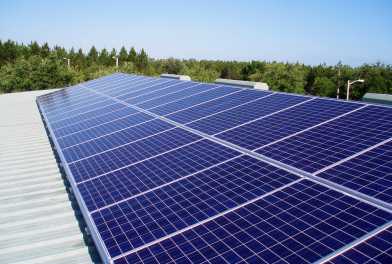
Auctions for renewable energy support have become the standard way to give out subsidies to solar energy projects and other renewables in Europe. In an auction, investors usually compete to receive the subsidy based on their offered support price, where the bidders with the lowest offered prices win. The Swiss government has started using auctions to award investment subsidies to larger PV projects. Are the auctions designed well and fit for purpose? How have the auctions performed until now?
Land-free bioenergy for a carbon-neutral Europe – why, what, how?
- Blog
- News
- Energy sciences

Navigating the complexities of bioenergy, its potential for carbon neutrality, and its conflicts with land, food, and feed resources is a pressing issue. What if we could circumvent these issues and focus solely on land-free bioenergy, similar to growing mushrooms on waste coffee grounds for a delicious dish? Waste and byproducts can generate valuable bioenergy, playing strategic roles in a future sustainable energy system.
ETH Zurich and EPFL launch a green energy coalition
- Energy sciences
- News
- Press release
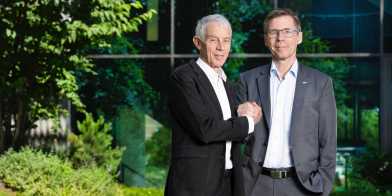
ETH Zurich and EPFL want to work with partners from politics, science and industry to push innovative storage and transport solutions for renewable energy carriers. The overall goal is to create a climate-neutral and flexible energy system for Switzerland. Around 20 partners and industrial companies have already voiced their interest in a collaboration.
Can Switzerland transition to a secure renewables-based energy system? Absolutely!
- News
- D-ITET
- Energy sciences
- Blog
- D-MAVT
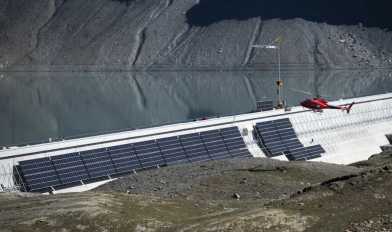
Gabriela Hug and Christian Schaffner argue that securing an affordable energy supply from renewable sources is not a utopian ideal for Switzerland, but rather a practical and feasible necessity.
We need more transparent supply chains for a low-carbon society – the case of lithium mining
- Blog
- News
- Energy sciences

Every time we calculate the environmental impacts of an electric vehicle, we use data from the lithium carbonate production at the Salar de Atacama in Chile. To meet soaring lithium demand, other, more polluting mining pathways are emerging. However, poor data availability is preventing proper accounting, leading to underestimated environmental damages. What we need are more transparent supply chains for a low-carbon society.
